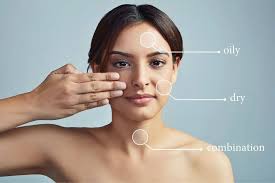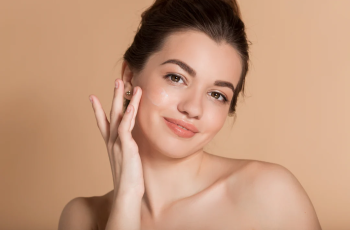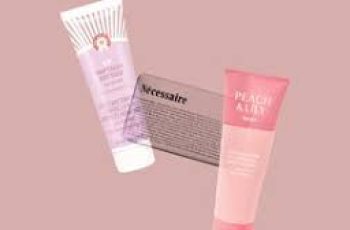
Alcohol as an Ingredient in Skin Care Products: A Complete Guide
Alcohol appears in many skin care products, but not all alcohols are the same.
They vary widely in type, function, and effects on the skin. Understanding these differences helps you choose products that truly benefit your skin.
There are several types of alcohol found in skin care, including denatured alcohol, rubbing alcohol, ethyl alcohol, benzyl alcohol, isopropyl alcohol, and fatty alcohols.
Each serves unique roles and impacts skin differently.
This guide explains the kinds of alcohol in skin care, their uses, benefits, risks, and which skin types they best suit.
We also clarify common misconceptions and safety concerns related to alcohol in topical products.
What Role Does Alcohol Play in Skin Care?
Alcohol is often added to skin care products for multiple reasons. It acts as a preservative, solvent, emulsifier, and penetration enhancer.
Its antimicrobial properties help keep products fresh by preventing bacterial growth.
True alcohols, also known as simple alcohols, dissolve other ingredients, stabilize formulas, and reduce foaming in products. They lower viscosity, making lotions and serums easier to apply.
You will find alcohols in toners, essences, sunscreens, serums, moisturizers, creams, and lotions. Their role depends on the formulation and the desired effect on skin and product stability.
Is Alcohol Safe to Use on Skin?
Alcohol consumed orally is toxic, but when applied topically in skin care, most alcohols are considered safe.
The Cosmetic Ingredient Review (CIR) has evaluated many alcohols, generally finding them safe within recommended limits.
The safety of denatured alcohol depends on the substances used to denature it. Some denaturants, like quassin and brucine, are best avoided, but these are rarely used in cosmetics today.
The Environmental Working Group (EWG) rates most alcohols as low hazard, scoring them a 1 on the safety scale.
The primary concern with alcohol in skin care is its potential drying effect, which varies by concentration and skin type.
Denatured Alcohol: What Is It?
Denatured alcohol, often labeled as “Alcohol Denat” or “Ethanol Denat” on product labels, is ethanol rendered undrinkable by adding bittering agents. This prevents misuse as a beverage.
It’s a common ingredient in many skin care formulas, including natural and organic products. Denatured alcohol helps products dry quickly and enhances ingredient penetration into the skin.
While effective at killing bacteria and extending shelf life, denatured alcohol can disrupt your skin’s protective barrier and damage beneficial microbes, especially in high concentrations.
Rubbing Alcohol (Isopropyl Alcohol)
Isopropyl alcohol, or rubbing alcohol, is another commonly used alcohol in skin care.
It is a powerful antiseptic and is effective at removing excess oils from the skin, making it useful for oily or acne-prone skin.
However, it can be too harsh for dry or sensitive skin, causing irritation, redness, and worsening conditions like rosacea. It strips natural oils, damaging the skin barrier if overused.
There’s limited research on its effectiveness for acne treatment, so it’s best used cautiously and sparingly, especially on sensitive skin.
Benzyl Alcohol
Benzyl alcohol is a mild preservative and solvent found in many skin care products. It helps prevent bacterial growth and extends product shelf life.
People with oily or acne-prone skin may benefit from products containing benzyl alcohol, but those with dry or sensitive skin should be cautious, as it can sometimes cause dryness or irritation.
Benzyl alcohol may appear under different names such as phenylmethanol or hydroxytoluene, so keep an eye on ingredient labels if you wish to avoid it.
Fatty Alcohols: Cetearyl, Cetyl, and Stearyl Alcohol
Fatty alcohols like cetearyl, cetyl, and stearyl alcohol are quite different from drying simple alcohols.
They are derived from natural oils, such as coconut or palm oil, and function as emollients and emulsifiers.
These alcohols soften and hydrate the skin by forming a protective barrier that locks in moisture. They help improve the texture and stability of creams, lotions, and moisturizers.
Fatty alcohols are generally safe and well tolerated, even by dry and sensitive skin types, making them beneficial rather than harmful ingredients.
Ethyl Alcohol (Ethanol)
Ethyl alcohol, or ethanol, is widely used for its antiseptic and preservative effects. It helps disinfect skin and stabilize products while improving the absorption of active ingredients.
Though effective, ethanol can dry out skin, especially in higher concentrations.
People with dry or sensitive skin should use products with ethanol carefully and look for formulations with moisturizing ingredients to counteract dryness.
Aromatic Alcohols and Essential Oils
Aromatic alcohols, often found in essential oils, add fragrance but can sometimes irritate the skin or cause allergic reactions.
If you have sensitive skin or known allergies, consult an allergist before incorporating products containing aromatic alcohols or essential oils into your routine.
Can You Be Allergic to Alcohol in Skin Care?
Yes. Some alcohols are more likely to cause allergic reactions, including benzyl alcohol, cetyl alcohol, and lanolin alcohol.
If you experience redness, itching, or irritation after using a product, check its ingredient list and consider patch testing new products to identify potential allergens.
Myths About Alcohol in Skin Care
Myth: Alcohol causes your skin to produce more oil.
Fact: This has never been scientifically proven.
Myth: All alcohols are bad for your skin.
Fact: The type and amount of alcohol matters. Fatty alcohols moisturize, while some simple alcohols can dry out skin.
Myth: Alcohol is the best way to clean skin.
Fact: Alcohol kills microbes but doesn’t effectively remove dirt, sunscreen, or makeup from pores. Choose cleansers suited to your skin type instead.
Choosing Skin Care Products with Alcohol
If you have oily or acne-prone skin, products containing certain alcohols may help control oil and bacteria. Those with dry or sensitive skin should avoid high concentrations of drying alcohols.
Understanding your skin type is key. The Baumann Skin Type system is a great tool to identify your skin’s needs and choose suitable products.
Alcohol-Derived Ingredients to Know
Many ingredients in skin care are derived from alcohol but do not have the drying effects of simple alcohols. Examples include:
Ethylhexylglycerin (a preservative and moisturizer)
Phenoxyethanol (a broad-spectrum preservative)
Cetyl palmitate (an emollient)
Glyceryl stearate (an emulsifier)
These compounds improve texture, stability, and moisturizing effects without damaging the skin barrier.
Should You Clean Your Face with Alcohol Every Day?
Daily use of alcohol-based cleansers is not recommended for most skin types. While it may help oily skin remove excess oil occasionally, overuse can dry out and irritate skin, damaging the protective barrier.
Dry and sensitive skin types should opt for gentle, non-alcohol-based cleansers to maintain hydration and protect the skin.
Final Thoughts
Alcohol in skin care isn’t inherently bad. Its effects depend on the type of alcohol, its concentration, and your skin type.
Fatty alcohols hydrate and protect, while simple alcohols can disinfect but also dry the skin. Knowing your skin and reading labels carefully will help you make informed choices.
If you’re unsure about your skin type or how alcohol might affect your skin, consider consulting a dermatologist or using scientific tools like the Baumann Skin Type Quiz to guide your routine.


